The terms “digital marketing” and “social media marketing” are generally used interchangeably if you’re like most people. That is incorrect. A small portion of the vast digital marketing pie is social media marketing. To discover more about the two and increase the effectiveness of your marketing initiatives, read our in-depth guide.
Digital Marketing vs Social Media Marketing: The Difference You Need to Know
It’s simple to get lost in the technicalities when discussing the specifics of social media marketing and digital marketing.
The phrase “it’s all marketing, what does it matter?” has been used by some.
However, as we’ll see in a moment, it’s important for marketers and company leaders to distinguish between “digital marketing vs. social media marketing”.
Social media marketing is only one of the many forms of Internet marketing that go under the general heading of “digital marketing.” The type of channel utilized makes a difference.
Table of Contents
ToggleWhat is Digital Marketing?
Digital marketing is a process, where promoting a company’s services or its products on the top of the Search Engine Result Pages through digital tools. It includes both online and offline media. It includes radio, television, podcasts, billboards, print ads, text messages, and a wide range of other things.
Digital marketing includes a lot of online marketing. Digital marketing includes the services of Search Engine Marketing (SEM), content marketing, and email marketing. Traditional marketing has been phased out in favor of digital marketing.
Google Ads (PPC), marketing emails, and electronic billboards are replacing magazine advertisements, direct mail, and printed billboards. The goal of marketing is always to get companies’ services and products in front of as many people as possible.
Offline Digital Marketing
Offline Digital marketing is frequently criticized for being outdated or useless.
However, some of the most well-known companies today, such as Coca-Cola and McDonald’s, continue to spend millions of dollars annually on billboards and prime-time TV advertisements.
Offline digital marketing channels can be highly effective when used properly.
- Online radio advertisements and radio program promotions (radio)
- LED billboards in busy places (improved offline advertising);
- Cable TV commercials and streaming services like Netflix (TV)
- Cold-calling, texting, and in-app advertisements (phone marketing)
These strategies can be costly, but they are frequently quite effective. Because of this, a lot of new and small firms use Internet marketing.
Online Digital Marketing
Any digital marketing that relies on the Internet is considered to be online marketing. We will just discuss the top 6 categories of web marketing out of the many that exist.
- Search Engine Marketing:
Using sponsored techniques to make websites and companies more visible online. One instrument used in SEM is search engine marketing (SEM). - Content Marketing:
In this process, indirectly promoting a business or product via online material like blogs and videos. It plays a large role in inbound marketing. - Google Ads (PPC):
involves placing ads on websites like Google and getting paid every time someone interacts with the ad (by downloading a guide, making a purchase, or signing up for a demo, for example). - Email Marketing:
The practice of sending marketing emails to potential customers is a significant component of outbound marketing. - Affiliate Marketing:
This is the practice of brands paying commissions to other parties to market their goods. Bloggers, resellers, and influencers all play significant roles in affiliate marketing. - Social Media Marketing:
As we shall see in more depth in the next section, social media marketing is a form of digital marketing.
Read Also: Power of Digital Marketing Strategies | Best Skin Specialist In Bangalore | Best Plastic Surgeon In Bangalore
Key Benefits of Digital Marketing
More individuals pay attention to internet marketing than any other kind overall. In 2021, 85% of Americans will have a smartphone and a variety of other internet gadgets in their possession. This has several amazing benefits for digital marketing:
- Huge Reach:
Global reach is a possibility for digital marketing. As marketers, we can choose how big of an audience we want to target by using everything from regional radio stations to Google Ads. - Cost Effectiveness:
A successful digital marketing plan will be far less expensive to implement than conventional marketing strategies. While allowing access to a far larger audience, it does this. - Versatility and Accessibility:
More brands may sell their products through digital platforms than through any other traditional route. Numerous small companies may now successfully and efficiently market their specialized goods and services online thanks to platforms like Amazon and Shopify. - Concrete Conversions:
Digital marketing offers excellent measurement. By tracking several marketing initiatives and indicators like email open rates, home page views, and direct transactions, brands can frequently correctly approximate the number of new consumers obtained. - Target Audience and Personalization:
Using the target population as a guide, modern technology makes it relatively simple to customize marketing programs. It is feasible to develop incredibly targeted marketing material based on consumer profiles utilizing customer data.
What is Social Media Marketing?
Social media marketing is a part of online digital marketing. Which uses social media platforms and discussion boards to connect with potential customers. Facebook, Twitter, Instagram, YouTube, TikTok, and Pinterest are a few of the most popular social networking sites.
Online discussion boards like Quora and Reddit are excellent places to sell on social media. Social media marketing, or SMM for short, is all about distributing really compelling, frequently brief material to draw in new clients.
SMM isn’t only about selling, though. Additionally, brands utilize Internet forums to evaluate market trends, assess brand recognition, and monitor consumer opinion. Social media management has evolved to refer to all of these strategies.
What are the Benefits of Social Media Marketing?
The field of social media marketing is broad and intricate.
Additionally, it is always changing as platforms evolve and businesses find new methods to promote to consumers. However, there are a few key objectives that brands like to accomplish with SMM:
- Advertising:
Paid advertisements are one of the main ways that social media is used to promote goods and services, and this is how social media firms are able to support themselves. - Content Marketing:
The site and blog material are frequently promoted using SMM. This increases traffic to the website and fosters a devoted brand following, which is a terrific method to increase brand authority and exposure. - Tracking competition:
Information is abundant on social media channels. They are ideal for learning more about the marketing tactics of other companies, their chosen target markets, and even keyword research. - Boost Brand Reputation:
Customers may interact with brands more personally through social media channels. Building and upholding a consistent brand voice, such as one that is amiable, helpful, trustworthy, or professional, can enable you to do this. - Marketing Sentiment Monitoring:
SMM has tremendous power to determine, how the brand is viewed by consumers. It may be used to track comments, shares, mentions, and tone of social media postings. - Data Gathering:
Social media helps brands to learn a lot about the thoughts and lifestyles of their most important consumers. In turn, this aids them in fine-tuning their goods, services, and marketing initiatives to better serve the same clients.
Read Also: Social Media For Small Business Growth
Essential Pillars of Social Media Marketing
SMM is a flexible tool, thus it’s critical to have guiding principles for how we should utilize social media for marketing.
We’d recommend the following:
-
Have a solid strategy
Success in social media depends on having a well-thought-out plan. Every social media platform in use needs rules for what business objectives to pursue, what kinds of material to publish, and what kinds of brand personas to employ.
-
Maintain Consistency in Publishing
When it comes to social media participation, consistency is essential. It is required to create daily, weekly, or even monthly publication calendars, frequently with the use of automated technologies.
-
Engagement Monitoring
To monitor a brand’s social media performance, a number of high-tech software solutions are required. To monitor and remain ahead of market mood and trends, we need these technologies to inform us what consumers are saying about us.
-
Use of Analytics
Platforms for social media offer a wide range of analytical tools. We take the data seriously and use it to assess and quantify things like brand recognition, the effectiveness of social media initiatives, and more.
-
Commercial ads
When used correctly, paid social media advertisements may be a highly profitable investment. To guarantee a decent return on investment, we must spend on high-quality campaigns with highly customized adverts.
Digital Marketing vs Social Media Marketing: Which is Better?
Knowing what we do, it is obvious that social media marketing and digital marketing are no longer competitors. Instead, they are contemporary issues that demand consideration for both. We use PPC, email marketing, content marketing, and other digital marketing strategies in our online marketing campaigns for the greatest outcomes.
When it comes to customer-brand interactions, these frequently complement one another to create a more potent synergy. However, social media marketing is a very specialized form of advertising and needs much more care. A successful social media strategy is essential because of this.

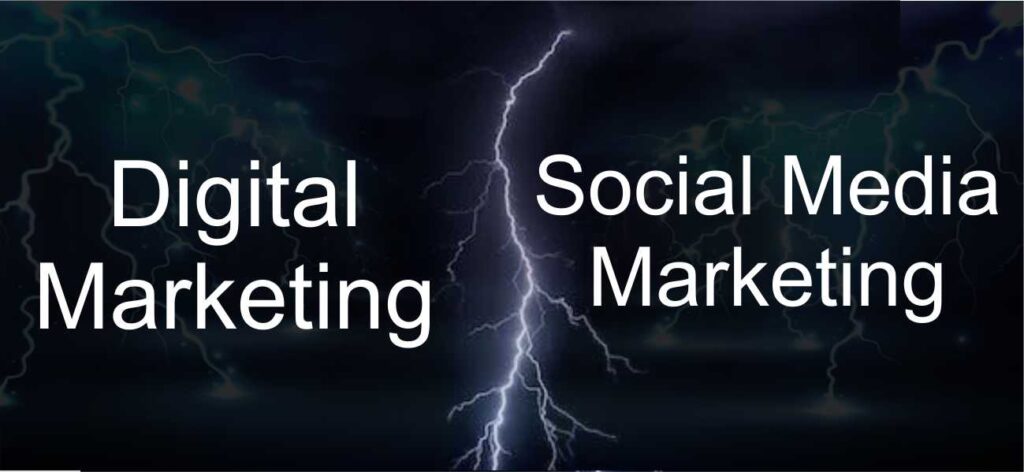

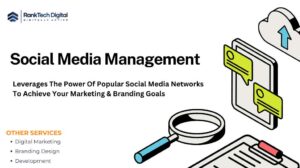
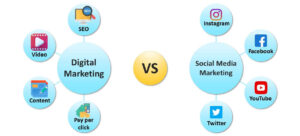
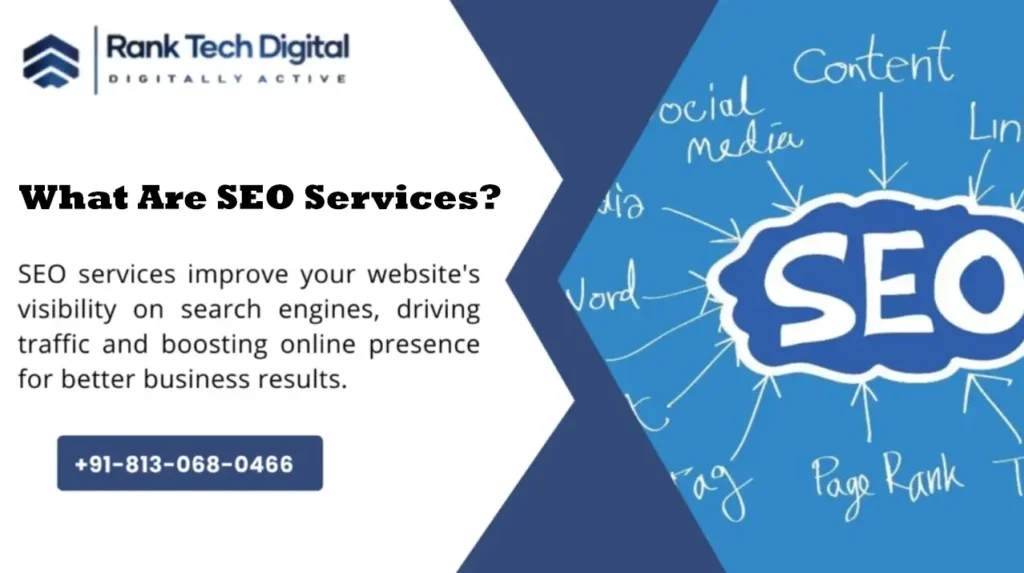

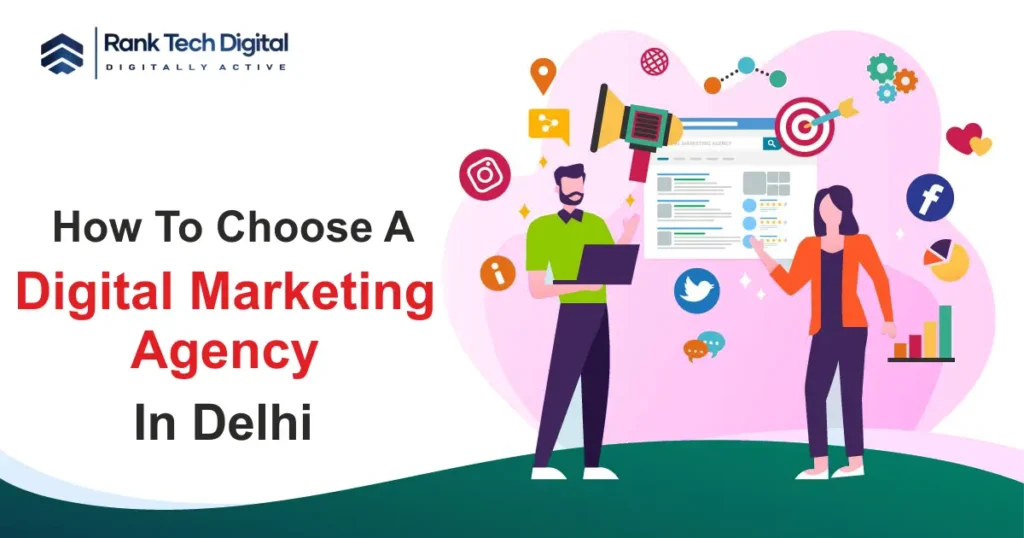


 Gaithersburg MD, USA
Gaithersburg MD, USA